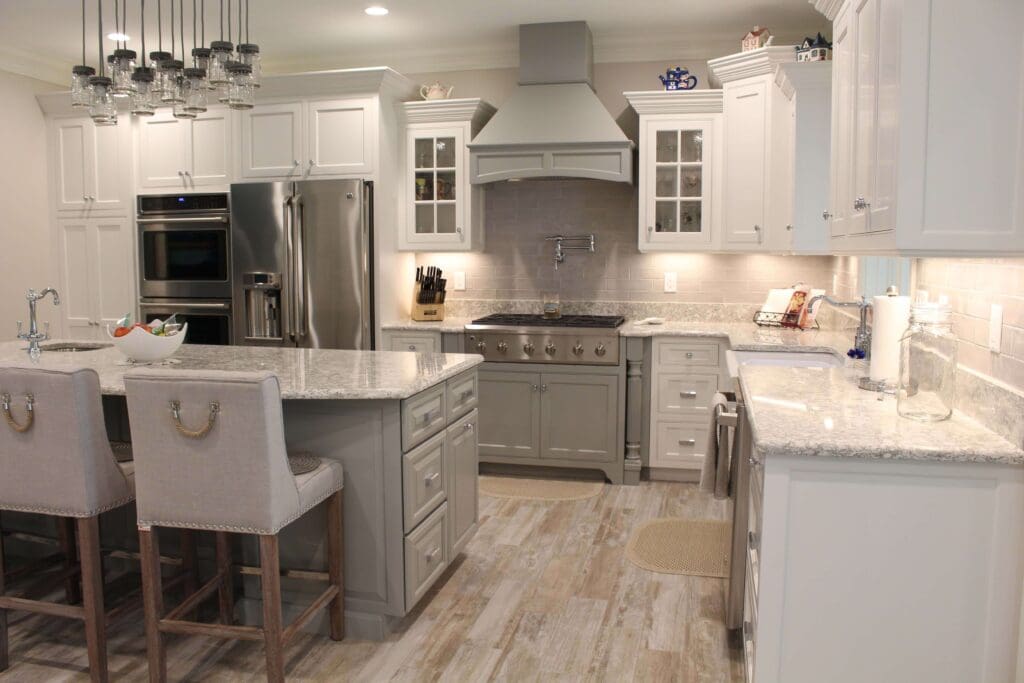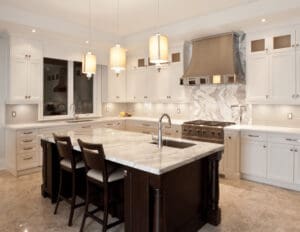Why Quartz Is Considered One of the Best Materials for Kitchen Countertops

Choosing the right kitchen countertop isn’t easy. You want something that’s beautiful, durable, and low-maintenance. Wood can quickly lose its appearance and may crack without proper care. Natural stone needs regular upkeep, and laminate doesn’t handle water or heat well. So why are more and more people choosing quartz material?
What Is Quartz Countertop Material?
Quartz countertops are made from a blend of natural quartz (about 90%) and specialized resins. The result is a strong, moisture-resistant, and smooth surface that resists stains and doesn’t absorb water. Unlike granite or marble, it doesn’t require regular sealing. That’s why quartz material is such a great fit for kitchens.
Quartz Countertops Pros and Cons
On the plus side: high durability, stain resistance, easy maintenance, and a wide range of colors and patterns. Quartz can mimic marble, concrete, or even natural slate — materials with rich textures and patterns, but without the maintenance headaches. The downsides? It’s sensitive to high heat (you’ll want to use trivets for hot pans), and it’s more expensive than, say, laminate. On average, quartz countertops cost between $70 and $170* per square foot, while laminate runs around $20–$40* per foot. Yes, the price difference is noticeable, but many find the durability and convenience well worth it.
Why Is Quartz Used in Countertops?
Because it combines everything homeowners are looking for: it’s durable, attractive, easy to clean, and made to last. Quartz is non-porous, so it won’t absorb water or grease. It also doesn’t fade in sunlight, crack, or lose its appearance — even after 10 to 15 years. That’s what makes it such a great choice for busy kitchens.
Is Quartz Really Better Than Natural Stone?
In many ways — yes, especially when it comes to practicality. Unlike granite or marble, quartz doesn’t require sealing, is less likely to chip, and is easier to maintain. That makes it a convenient choice for busy, everyday kitchens. At the same time, it looks impressive — quartz material works well with a wide range of design styles, from sleek, solid-color surfaces to intricate veining that mimics natural stone. It’s this predictability and versatility that make it a favorite among designers.
Conclusion
Now you know why quartz is used in countertops and what the quartz countertops pros and cons are. It’s a material that combines durability, aesthetics, and low maintenance. Quartz material truly delivers the perfect balance every modern kitchen needs — with no extra hassle and complete design freedom. And now that you understand what quartz countertop material is made of, making a confident, well-informed choice becomes much easier.
Read more:
Best Cleaners for Quartz Countertops: What to Use and What to Avoid
How to choose a stylish and durable countertop for your kitchen: Trendy Solutions for 2025
*Prices are current as of May 2025 and provided for informational purposes only. Actual pricing may vary at the time of reading. Estimates are based on average data from Home Depot, Houzz, HomeAdvisor, and other relevant U.S. sources.











